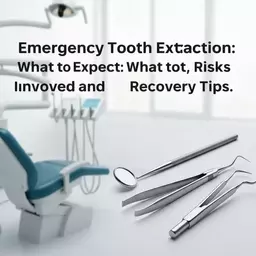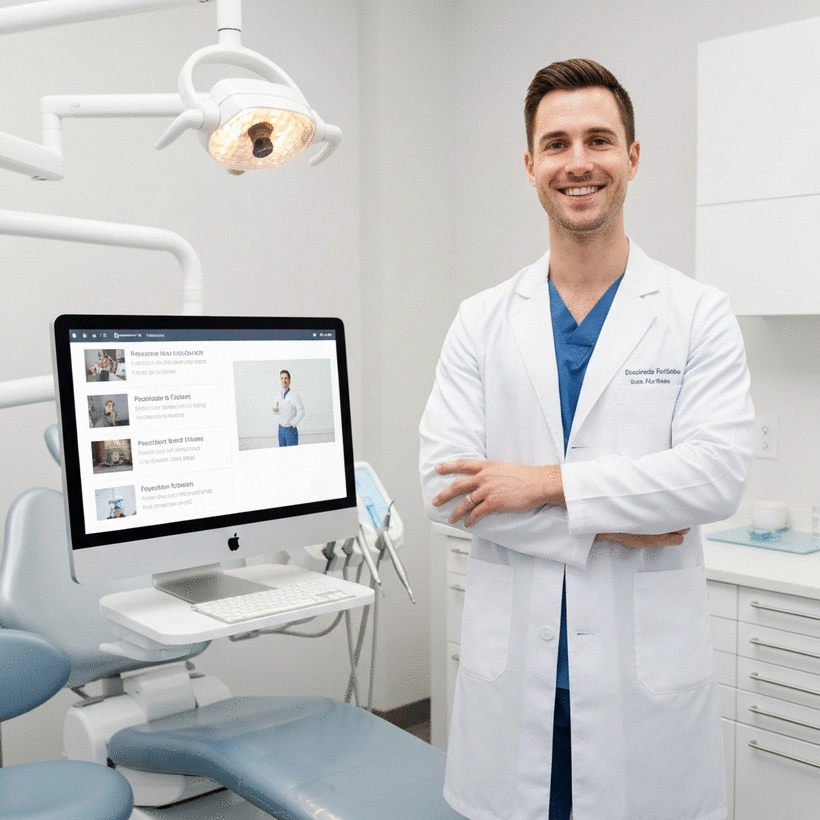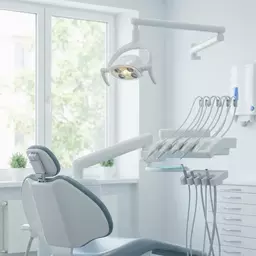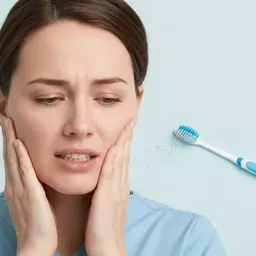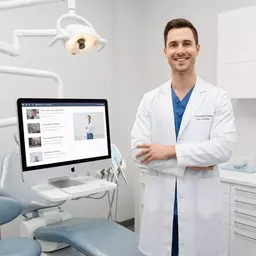Emergency Dentist or Regular Dentist?

What if a sudden toothache struck in the middle of the night? Knowing when to seek help is crucial. This guide unpacks the distinct roles of emergency dentists and regular dentists, ensuring you’re prepared for whatever dental challenges arise.
What You Will Learn
- Emergency dentists provide immediate care for urgent dental issues like severe pain or trauma.
- Regular dentists focus on preventive care, routine check-ups, and long-term oral health management.
- Recognizing the signs of a dental emergency can guide you to seek timely treatment.
- Maintaining regular dental visits can significantly reduce the risk of future dental emergencies.
Emergency vs. Regular Dentists: A Comparative Overview
This comparison highlights the fundamental differences in focus, services, and urgency between emergency dentists and regular dentists, guiding you to choose the appropriate care for your dental needs.
Emergency Dentist
Specializes in immediate care for urgent dental situations.
- ★ **Focus:** Alleviate pain, prevent complications
- ★ **Availability:** Often 24/7, on-demand
- ★ **Common Issues:** Severe toothaches, knocked-out teeth, infections, trauma
- ★ **Training:** Specialized in urgent problem assessment and treatment
Regular Dentist
Focuses on preventive care and routine procedures to maintain oral health.
- ★ **Focus:** Long-term health, prevention, education
- ★ **Availability:** Scheduled appointments, regular business hours
- ★ **Common Issues:** Check-ups, cleanings, fillings, crowns, oral hygiene guidance
- ★ **Training:** General dentistry, comprehensive oral health management
Understanding the Roles of Emergency Dentists and Regular Dentists
When it comes to dental care, you might find yourself wondering about the differences between emergency dentists and regular dentists. Both play critical roles in ensuring your oral health, but they cater to different needs. Here at eDentistNearMe, we focus on bridging the gap between patients and the urgent care they may need, while also emphasizing the importance of regular dental visits.
Understanding these roles can help you make informed decisions when faced with dental issues. Let’s dive into what defines an emergency dentist and how their services differ from those of regular dentists.
What Defines an Emergency Dentist?
An emergency dentist specializes in providing immediate care for urgent dental situations. Their primary focus is on addressing issues that require prompt attention to alleviate pain and prevent further complications. Whether it’s a knocked-out tooth, a severe toothache, or a broken dental restoration, emergency dentists are trained to handle these situations effectively.

Immediate Care for Dental Emergencies
Emergency dentists are often available 24/7 to ensure that you receive the care you need, when you need it most. For more information on what constitutes a dental emergency, you can refer to resources from the American Dental Association. Here are a few scenarios where you might need to see an emergency dentist:
- Severe toothaches that are causing immense discomfort
- Knocked-out teeth or dental trauma
- Broken crowns or fillings
- Infections or abscesses, which can be serious and require immediate attention as detailed by the National Institute of Dental and Craniofacial Research.
In these situations, don’t hesitate to reach out for help. Quick action can often make a significant difference in your recovery!
Specialized Training and Qualifications
Emergency dentists undergo specific training that prepares them to handle a variety of urgent dental problems. As highlighted by the American Association of Endodontists, they are equipped with the skills needed to quickly assess a situation and provide appropriate treatment. This could include performing extractions, managing infections, or even providing sedation for particularly anxious patients.
At eDentistNearMe, we prioritize connecting you with professionals who have the necessary qualifications and experience to manage your dental emergencies efficiently.
Regular Dentists: Focus on Preventive and Routine Care
Regular dentists, often referred to as general dentists, focus primarily on preventive care and routine procedures. Their goal is to maintain your overall dental health through regular check-ups, cleanings, and ongoing education about oral hygiene.
Routine Check-ups and Cleanings
These visits are essential for catching potential issues before they become serious problems. Regular dentists typically recommend:
- Biannual check-ups
- Professional cleanings to remove plaque and tartar
- Fluoride treatments and sealants for added protection
Maintaining this routine is key to preventing dental emergencies down the road. Your long-term health is our priority!
Long-term Dental Health Management
Aside from routine visits, regular dentists often play a role in managing your overall oral health. They can provide guidance on:
- Dietary choices that impact dental health
- Best practices for daily oral hygiene
- Addressing issues like teeth grinding or misalignment
Incorporating their insights into your oral care routine can not only enhance your smile but also pave the way for a healthier future.
Key Differences Between Emergency and Regular Dental Services
Understanding the key differences between emergency and regular dental services can help you choose the right care when you need it. Let’s explore these distinctions further!
Pro Tip
Did you know? Regular visits to your dentist can significantly reduce the likelihood of dental emergencies. By maintaining a consistent routine of check-ups and cleanings, you can catch potential issues before they escalate. Aim for biannual visits and don’t forget to discuss any concerns you may have about your oral health!
Summarizing Key Insights on Dental Care Choices
When it comes to your dental health, understanding your dental needs is crucial! Whether you're facing a sudden toothache or planning your next routine visit, knowing what type of care you require can help you make the best choices.
First, let’s talk about evaluating the urgency of your situation. If you’re experiencing severe pain, bleeding, or any signs of trauma, it’s time to seek emergency dental care. On the other hand, if your needs are more routine, a visit to your regular dentist may be all you need. This distinction can guide you in making informed decisions about your dental care.
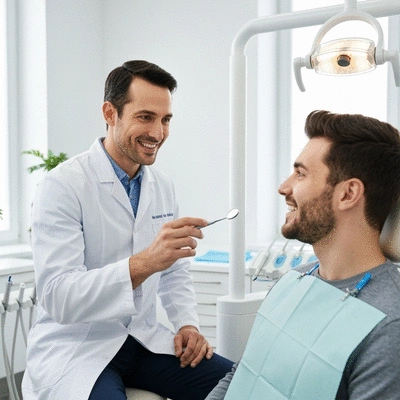
Understanding Your Dental Needs
Evaluating the Urgency of Your Dental Situation
Knowing when to visit an emergency dentist versus a regular dentist can be challenging. Here are some key indicators of urgency:
- Severe pain that disrupts your daily life
- Visible damage, like a broken tooth or lost filling
- Signs of infection such as swelling or fever
- Trauma resulting from an accident or injury
By recognizing these signs, you can take action quickly! Remember, your health is a priority, and timely care can make all the difference in recovery.
Making Informed Decisions About Dental Care
Once you’ve evaluated your situation, it’s time to make informed decisions. Consider the following:
- Assess if the problem can wait until your next scheduled appointment.
- Research local emergency dentists via eDentistNearMe for immediate access to care.
- Consult your regular dentist for advice on managing pain until you can be seen.
Making informed choices ensures you receive the care you need, whether it’s urgent or routine!
Your Next Steps for Optimal Dental Health
Finding the Right Emergency Dentist or Regular Dentist
Finding the right dental professional is key to your health. At eDentistNearMe, we connect you with emergency dentists who are ready to assist you 24/7. Whether you need immediate help or want to schedule a routine check-up, our platform can streamline the process.
Don't hesitate to enter your location and discover trusted local dentists eager to help you maintain your dental health!
Contact Information and Resources for Further Assistance
If you're looking for additional resources, don't forget to check our website for:
- Emergency dental care tips
- Contact information for local emergency dentists
- Educational materials to enhance your oral health knowledge
We’re here to support you in every step of your dental journey!
Emergency Dental Kits: Essential Items to Have
Being prepared for a dental emergency can save you time and stress. Here’s a quick list of essential items to include in your emergency dental kit:
- Dental adhesive for crowns or fillings
- Oral pain relief medication
- A small container with a lid (for preserving knocked-out teeth)
- Extra toothbrush and toothpaste
Having these items on hand can make a significant difference in managing emergencies effectively. Remember, the goal is to keep yourself comfortable and ready for professional care!
Recap of Key Points
Here is a quick recap of the important points discussed in the article:
- Emergency dentists provide immediate care for urgent dental issues, such as severe pain or trauma.
- Regular dentists focus on preventive care, including routine check-ups and cleanings to maintain oral health.
- Recognizing signs of urgency, such as visible damage or infections, can guide you in seeking the right care.
- It's essential to make informed decisions about your dental care based on the severity of the situation.
- Being prepared with an emergency dental kit can help manage urgent situations effectively.
Frequently Asked Questions (FAQs)
What is the main difference between an emergency dentist and a regular dentist?
An emergency dentist provides immediate care for urgent dental issues like severe pain, trauma, or infections, often with 24/7 availability. A regular dentist focuses on preventive care, routine check-ups, cleanings, and long-term oral health management through scheduled appointments during business hours.
When should I see an emergency dentist?
You should see an emergency dentist for severe toothaches, knocked-out teeth, dental trauma, broken crowns or fillings causing discomfort, or signs of infection like swelling or abscesses.
What services do regular dentists typically provide?
Regular dentists offer routine check-ups, professional cleanings, fillings, crowns, oral hygiene guidance, fluoride treatments, and sealants to maintain overall dental health and prevent future issues.
Can regular dental visits prevent dental emergencies?
Yes, regular visits to your dentist can significantly reduce the likelihood of dental emergencies. Consistent check-ups and cleanings help catch potential issues early, preventing them from escalating into urgent problems.
What should I include in an emergency dental kit?
An emergency dental kit should include dental adhesive for crowns or fillings, oral pain relief medication, a small container with a lid (for preserving knocked-out teeth), and an extra toothbrush and toothpaste.

